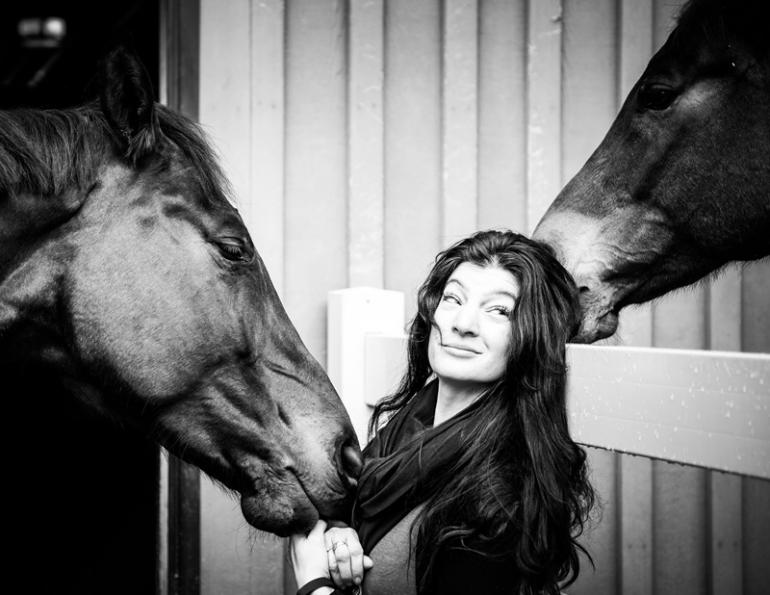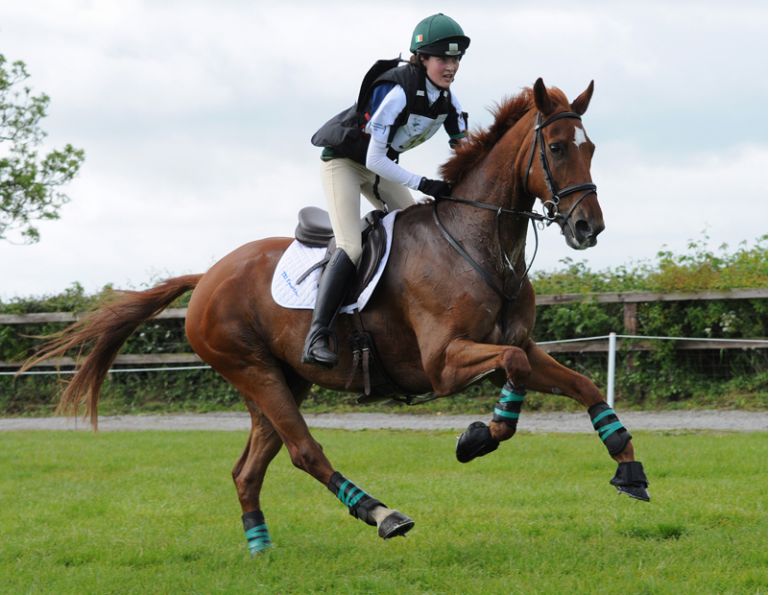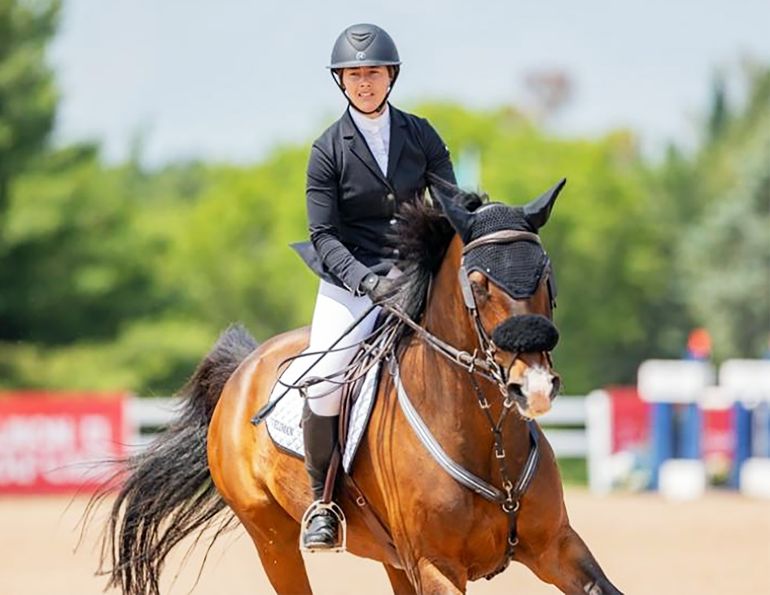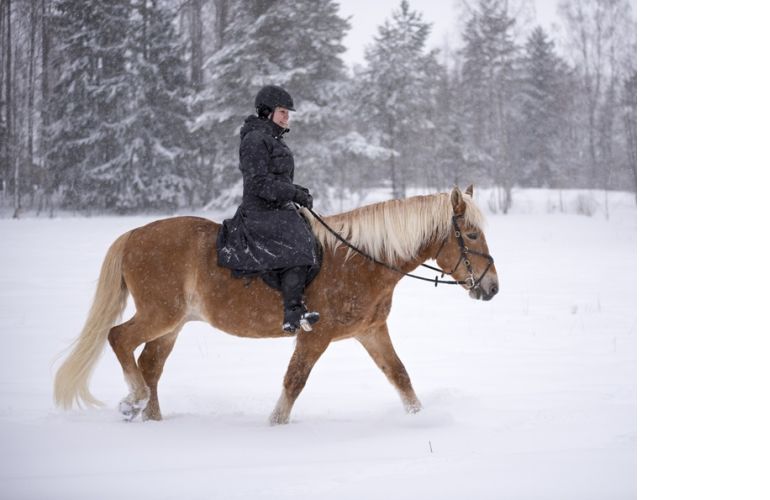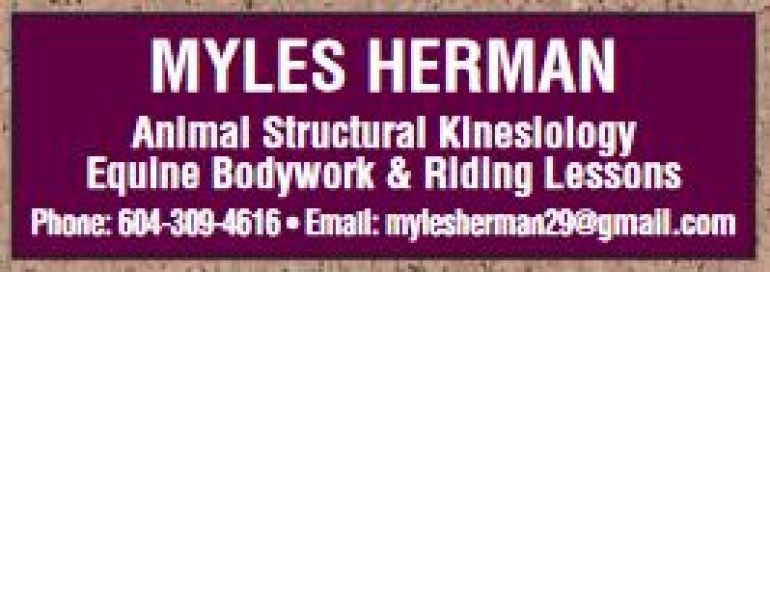By April Clay, M.Ed., Registered Psychologist
What does it mean to “ride in the zone”? Most riders will say they have experienced it. Some would even say it’s the very reason they ride. It’s an effortless feeling when everything is going your way. If you haven’t had the pleasure of visiting that famous zone, or want to know how to get there more often, read on.
First, it helps to understand some of the universal experiences athletes have “in the zone.”
Riding in the zone usually encompasses these characteristics:
- Relaxed: Your mind is calm and your body is ready to respond. You feel relaxed, but you’re also able to act with intensity when needed. Just the right amount of tension exists in your body to get the job done well.
- Confident: You have no fear, no doubts. You expect to be successful, you don’t just hope it is going to go your way. Your confidence is clear by the way you carry your body and communicate, and by your facial expressions.
- Present-focused: You are totally absorbed in the moment — in the here and now. The only thing you are dealing with is the task at hand. You feel completely connected to your mount, ready to respond to the next bit of feedback and adjust accordingly.
- Trust: There is no interference from your thoughts. You are riding from a place where there is no conscious thought involved, only your instincts are guiding you and you have complete faith it will turn out right.
- Fun: You are having the time of your life. There is so much pleasure that comes from feeling competent and powerful. You never want it to end.
- In Control: You — not your emotions or your past — are in charge of your destiny. Everything seems to be happening in slow motion, so you have the time to make choices and exercise your complete power over the situation.
There is one more characteristic of the zone you might already be familiar with: it is elusive and very hard to recreate. When you try to force it to happen, it may get worse. In fact, it seems that trying is at odds with being in the zone.
There is no map. You can’t find the zone bottled on a shelf at your local tack store. However, there do appear to be skills you can cultivate to increase your chances of visiting the zone more often. Think of it as preparing the ground carefully for a beautiful flower you wish to plant. You have no control over the flower itself, but you can prepare the environment with skill and care, thereby increasing your chances of experiencing its beauty.
The first element of ground preparation is cultivating a good, old fashioned work ethic. Since the zone relies on automatic processes coming to the forefront, it stands to reason that your skill had better be well ingrained and practiced. So ask yourself, are you really committed to learning all there is to know about your riding craft? Do you know why things go wrong, and seek to correct them? Are you a problem solver? If you can develop a passionate curiosity about your sport, your work will seem joyful.
If you practice the first element, you will find it easier to get to the second, which is complete immersion in your task. The rider who is worried about going off course usually does. The busyness of our minds readily interferes with the skills we have worked so hard to attain. When you train, you naturally think more as you analyze and learn. But, this same thinking can wreak havoc on a performance. Competing is about letting go, letting your skill shine and shutting off your thinking mind. Your ride becomes anchored in instinct and responsiveness.
Another way to facilitate getting to the zone more often is to get to know your “performer self.” Your performer self is the part of you that shows up to take care of business in competitive situations; think of it as Clark Kent transforming himself by putting on his Superman cape. Your performance self holds all the knowledge you have acquired through training: all the hard earned lessons of the past. You can think of it as just one of many “selves” you have locked inside that you use depending on your needs. Maybe you have your student self, your work self, your parent self. Your performer self is simply a persona that fits your competitive riding needs.
Related: How to Ride Better by Thinking Less
To get to know this part of you, the first step is to mine past performances. When you were at your best, how would you describe yourself physically, mentally, and emotionally? If you haven’t competed a lot, mime past exceptional training sessions. For example, perhaps in your best past rides, you felt mentally clear and focused. Physically, you were loose, but with a distinct feeling of energy tingling through your body. Emotionally, you were a bit nervous, but also feeling excited and wanting to get in the ring.
When you have identified the core aspects of your performer self, the next step is to find ways to connect to it before you compete. Of all the mental skills you have experimented with, which ones resonated most with you? Which may assist you in mentally tacking up your mind to meet the challenge?
You know how to physically tack up your horse to ready him for work. Now you need to do the same with your mind. This is where you utilize a tool you have gained from all your mental skill practice. The tool becomes a cue that leads you back to previous knowledge. It’s like a key opening a door. The door reveals the best of your performer self.
Examples of mentally tacking yourself up may include visualizing an image of yourself after having completed one of your best rides. Or reminding yourself of all the months of hard work you have put in to deserve to compete on that day. It may be a phrase loaded with personal meaning like “let go and enjoy the flow.” Once you have begun to identify some mental tack-ups to help get you in the zone, you’re ready to formulate your pre-performance routine. What will you use and when?
Your pre-performance routine might start as early as a week before the event, or you might just focus on the day of competition. This is really up to you and your specific needs. The end point is the same for everybody: those last few minutes before you step in the ring. In this very last mental tack-up, you are setting up your mind for what is to come. It should be brief and easy to complete.
Remember that none of these strategies guarantee that you’ll perform in the zone each and every time. And performances “out of the zone” can be quite instructive and effective. Don’t chase that wonderful feeling of effortlessness directly; instead cultivate your skills, ritualize your preparation, and chances are you will be blessed with the feeling of flow enough times to keep you riding for many years to come.
Related: High Performance Habits for the Horse Competition Season
Photo: Dreamstime/Mreco99





